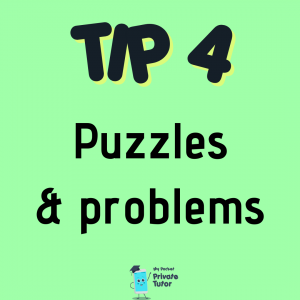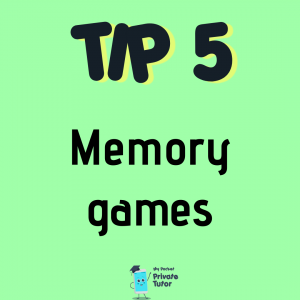
Do you want to help support your child with their Year 6 maths this year but you don’t know where to start? Are you worried about interfering with the methods used at school?
I’m going to give you my five top tips for how you can help support your child at home with Year 6 maths and be successful in the SATs.
1: Master the times tables.
This is the building block for so many other skills, especially fractions and harder calculations. It’s often the skill that is overlooked as all the times tables are expected to have been learned and secure by the end of Year 4.

There will not be a lot of teaching time set aside to help your child with their times tables if they are not already secure but it is one of the main barriers to being able to move on. This is something that’s very easy to do at home. There are lots of different types of online games that they can use to practise (I will talk more about this in a separate post), you can use flash cards, songs, art, find a way that your child likes to learn. The main thing is to master your times tables. There’s no way of getting away from it, daily practice is the only way to get better at this! The aim is to be able to recall both times- table and the corresponding division facts as well.
Check out our free resources section for some multiplication grids which you can use for practice or check out my free tutorial with some more tips on times table success.
2: Calculating with all four operations.
This means that your child will need to be able to do calculations where they are adding, subtracting, multiplying and dividing and they’re doing this with larger numbers, including numbers up to two decimal places.

This is something that’s very easy to practise at home, you can simply set yourself some sums and use a calculator to check. Again this is something that with daily practise , your child’s confidence will be greatly impacted. If you want to find Year 6 related calculation problems, post plenty of free arithmetic problems on our instagram page or you can find more resources by browsing the pocket private tutor shop
3: Familiarise fractions
Fractions can be intimidating (for us adults too) but if you start to recognise the fractions we use in everyday life it will help your child to feel more comfortable with them. Start to use the language of fractions when you can. For example if you are eating and sharing out portions, start to talk about it using the language of fractions.

“There are 16 sausages in the packet, I am having 3 so that’s 3/16.”
“The multipack of crisps had 12 packets, we finished 5 in three days. There is 7/12 left”
Small things like this used everyday, would help the concept of fractions feel more familiar. If children have a good understanding of the concept of fractions, it will prevent them thinking of them as really complicated numbers that they are scared to engage with in class
4: Puzzles and problems
Puzzles are a great way to encourage your children to be patient, to think outside of the box, to think systematically and to develop their logical thinking.

Working with problems that don’t have a straight forward solution and that might have lots of paths or might require visualisation and resilience is going to really help prepare them mentally when they come to reasoning problems in school and in the SATs papers. Check out our Instagram page for lots of daily puzzles and challenges or browse our free resources and shop for a Sudoku and Algebra ebook. Sites like Nrich are also fantastic for challenging maths puzzles and you can even select the type of investigative skill you want to work on.
5: Memory games
Ultimately, good mathematicians usually have a good working memory. If your child has a poor working memory they will find it hard to hold onto facts and remember multiple instructions. If they have a two-step math problem for example, they may solve the first part then forget it by the time they get to the second part. It can cause a lot of frustration and be a big barrier to their confidence, motivation and ability to retain facts. Their mathematical ability may be just fine but a poor working memory is preventing them from being able to allow their learning to be held onto.
In my opinion, a working memory is really underestimated and overlooked in terms of how much it impacts a child’s experience of maths.

To improve your memory, you don’t necessarily need to play math related games, there are lots of different memory games you can play online or in real life. Online there is an abundance of memory games available from a simple google search. One I use regularly involves a pattern which is covered up and then you have to remember where the pattern is, I have found this to be very popular and I often use it for 5 mins at the start of a session to warm up the brain! You can do also do things like place a group of objects on a tray, cover it up, see how many you can remember. You could look at a group of words for 2 minutes, how many can you remember? You could try to remember sequences of numbers, maybe phone numbers. You can play a game where each time you add a word onto a list, this was a childhood fave of mine, create a shopping list and as you went round the circle somebody adds a new item onto the list. The possibilities are endless, you can make it fun but doing lots of things that improve your child’s memory will also impact on your child’s ability with maths.
Join my community
I hope you have found my top tips useful. If you would like even more support, come join us in my FREE closed Facebook group for Year 6 parents where I will be able to share resources, give advice and answer any Year 6 Maths SATs questions you may have.





Leave a comment
Sign in to post your comment or sign-up if you don't have any account.